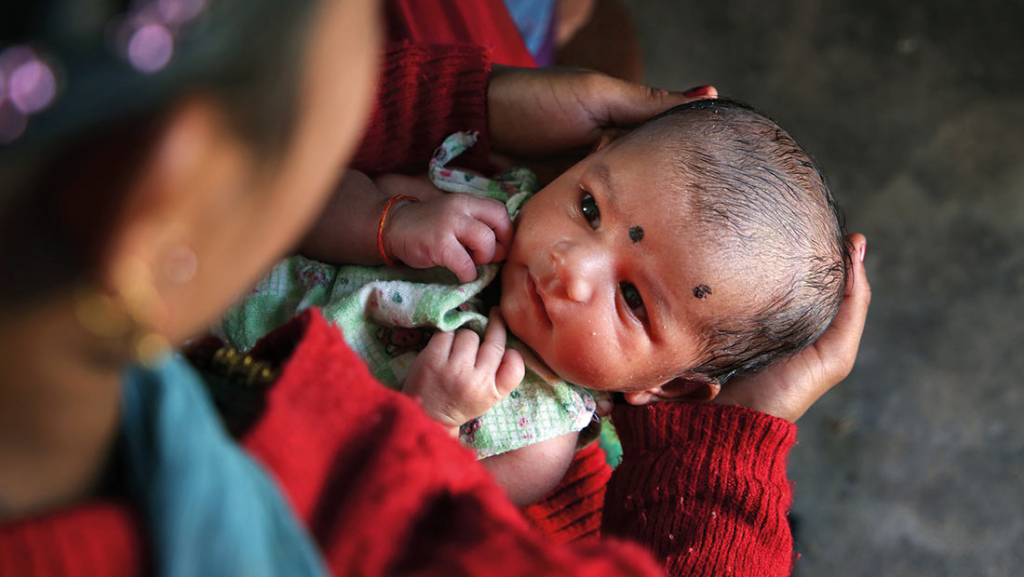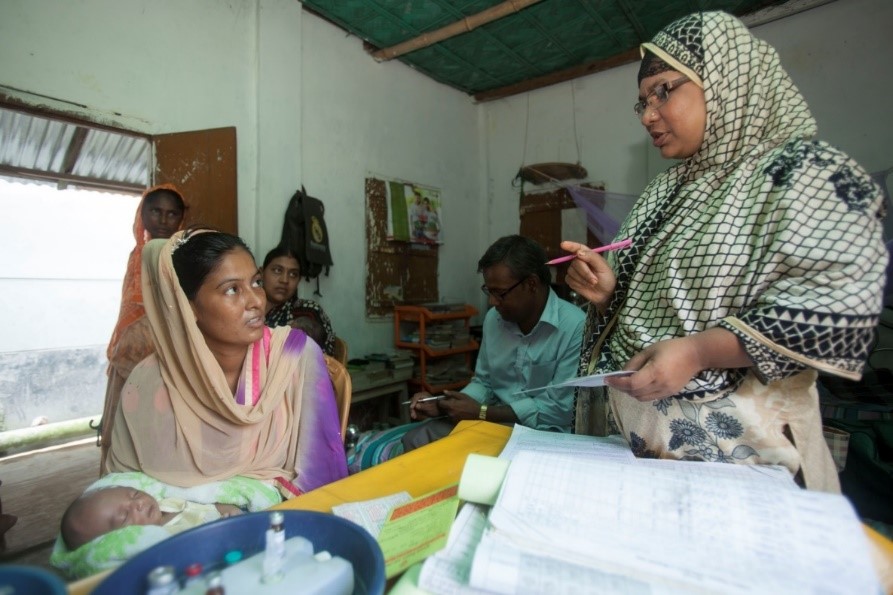
A newborn baby’s birth was just registered in Bangladesh. Source: Cabinet Secretary of Bangladesh (CRVS Secretariat, Cabinet Division)
By Moyeen Uddin, Shah Ali Akbar Ashrafi, and Andres Montes
One small sub-district in Bangladesh, not far from the capital of Dhaka, has become a pioneer in documenting its people’s births and deaths.
In January 2017, the government of Bangladesh with Vital Strategies and the University of Melbourne, through the Bloomberg Philanthropies Data for Health Initiative, chose Kaliganj – a sub-district in the Gazipur District with a population of around 300,000 – as a pilot area, where they would introduce an innovative way to record all births, deaths and causes of death.

A health assistant explains the importance of birth registration to a mother with her newborn child. Source: Vital Strategies Country Coordinators
An estimated 40% of people around the world are born and will likely die without any record of their existence, hindering their lives and leaving governments without critical data for policy-making.
Lack of birth registration means that a child has no legal identity or the means to prove it. For policy-makers, lack of knowledge about how many are born, how many die, and the causes of those deaths hinders the rational allocation of resources. In Kaliganj, health and family welfare staff took on the responsibility to record vital events.
What was previously a passive system, relying on families to register events, was transformed into a technology-enabled active system, and the pilot became a tremendous success. In addition to recording and reporting births and deaths, these frontline government workers conduct interviews aided by tablet computers with families who have experienced a death.
These “verbal autopsy” interviews will provide, a window into the causes of death in the community – where most deaths occur. The Kaliganj model achieved a forty-fold increase in registration rates of the estimated 5,600 births and 1,700 deaths per year in the sub-district.
The results were so encouraging that what is now called the “Kaliganj model,” is being replicated throughout the country by the government in partnership with the Data for Health Initiative. By scaling this model, Bangladesh aims to register every birth and 80% of deaths to meet the United Nations Sustainable Development Goals by 2030.
Since 2015, Vital Strategies has provided technical assistance to 16 low- and middle-income countries – including Bangladesh – with a focus on increasing birth and death registration and improving the quality of cause of death data.
Counting the Uncounted is a blog series that examines topics related to civil registration and vital statistics. The blog series is a part of the Bloomberg Philanthropies Data for Health Initiative. The views expressed are not necessarily those of Bloomberg Philanthropies. Partners in the Initiative include: WHO, the U.S. Centers for Disease Control and Prevention (CDC) and the CDC Foundation, the University of Melbourne, and Johns Hopkins University’s Bloomberg School of Public Health. For more information visit: Bloomberg Philanthropies Data for Health Initiative.